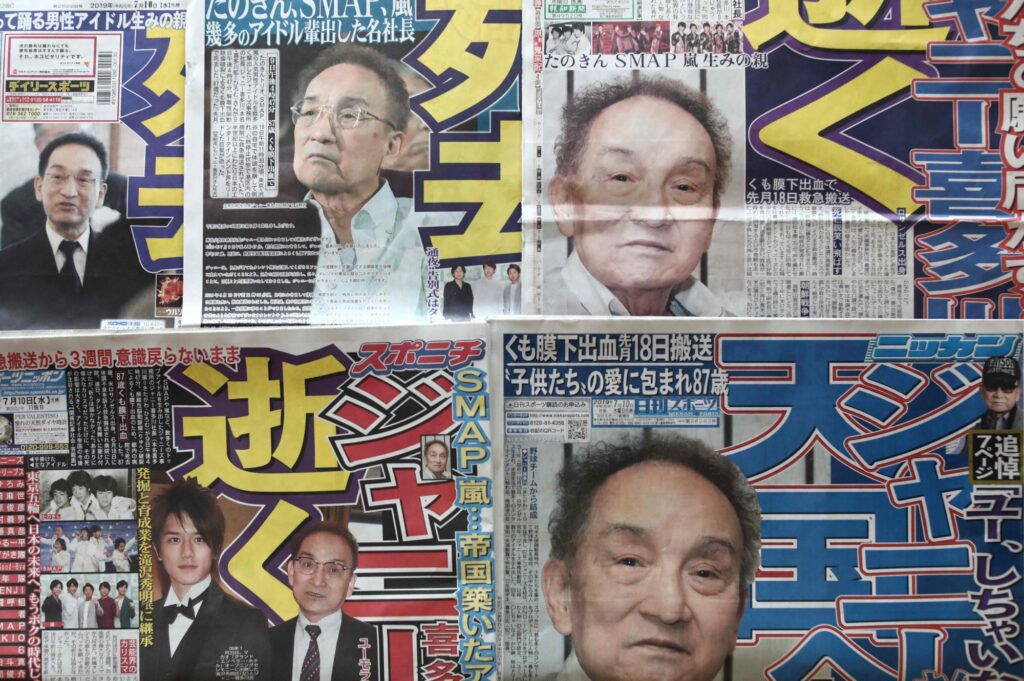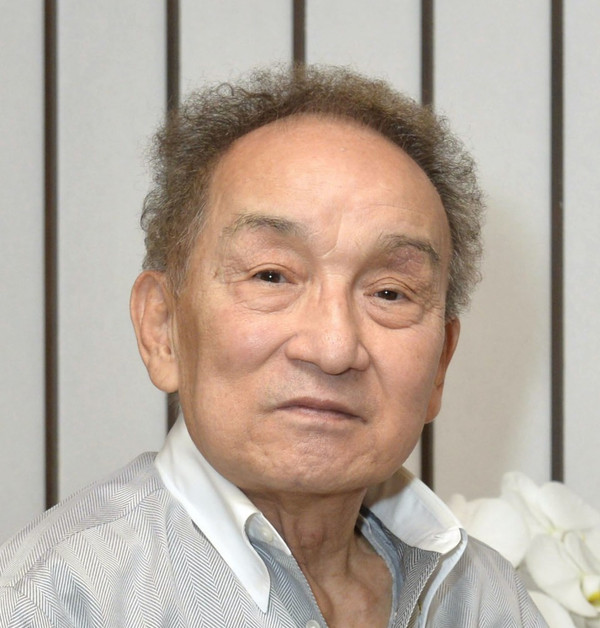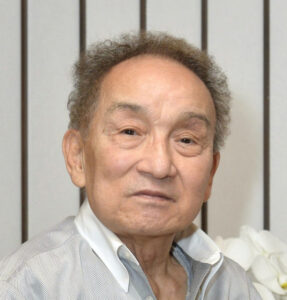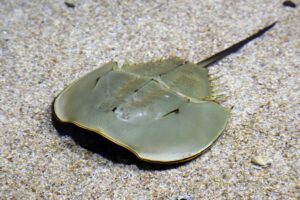日本でも語られないニュースがBBC NEWSで報道されています。ジャニーズの悲劇は皆知っていますがここまで語られるとは。ショッキングなニュースです。
Exposed for abuse but still revered – Japan’s J-pop predator
Exposed for abuse but still revered – Japan’s J-pop predator – BBC News
Johnny Kitagawa was the architect of Japanese pop-idol culture. His male-only talent agency, Johnny & Associates, churned out hit-making boy bands and Kitagawa held the world record for the most number-one artists, the most number-one singles, and the most concerts produced by an individual.
But allegations of sexual exploitation dogged Kitagawa’s career. These weren’t just whispers behind closed doors – they were discussed in the national press and some were proven in a civil court. That didn’t stop Kitagawa holding national treasure status to his last days. Even in death, he is revered.
“He is God,” says a young man about Kitagawa on the streets of Tokyo. A lot of people in Japan feel the same. Kitagawa’s funeral in 2019 was a national event. The then prime minister, Shinzo Abe, sent a message of condolence. Teary-eyed Japanese celebrities and boy band members performed a final goodbye at a memorial event in the Tokyo Dome.
For someone so famous though, there are only a handful of pictures of Kitagawa in existence. He rarely made public appearances, gave interviews or allowed photos to be taken of him.
He also strictly controlled photographs of his stars. Four years after his death at the age of 87, their boyish faces still look out over Japanese cities from billboards and giant TV screens. With their hairless jawlines and floppy fringes, these J-pop idols don’t just sell albums, they advertise anything from real estate to contact lenses.
It’s as if the allegations of Kitagawa’s sexual abuse have never really had an impact, despite the stories being around for decades. For a new BBC documentary, I’ve been looking at how denial and media silence allowed Japan’s most powerful pop music mogul to exploit teenage boys for decades.
Thousands of boys and young men went through the Johnny & Associates machine while Kitagawa was alive. All of them had direct contact with the man himself, who scouted and nurtured talent over a career spanning nearly six decades.
The system Kitagawa created allowed him unsupervised access to – and control over – boys. Known as “juniors”, new recruits worked as backing dancers for other bands until Kitagawa decided they were ready to debut – and move into the world of managers and PR. That could take years.
Hayashi (not his real name) was 15 years old when he sent his CV to Johnny & Associates. His first impression of Kitagawa, who he met at his audition, was that he was “kind and considerate”. But things quickly turned.
Hayashi has never spoken publicly about his experiences before and is understandably nervous about recounting his ordeal.
Just a week after the first meeting, Hayashi was invited to stay at one of Kitagawa’s homes, known as “the dormitory” because so many boys would sleep over. “After a while Johnny told me, ‘Go and have a bath.’ He washed my whole body, like I was a doll,” he says.
Visibly shaken, he recalls Kitagawa then performing oral sex on him.
Hayashi told us the abuse happened on a separate occasion too. He says it was clear the other boys knew what was going on.
“They all told me, ‘You have to put up with it or you won’t succeed.’ No-one around me had quit. Johnny was the only adult. So it wasn’t a situation where we could talk to anyone.”
As an adult, Hayashi believes this quiet acceptance was partly tied up with the boys’ dreams of success.
“The boys that succeeded, thanks to Johnny, their lives changed the moment they entered the agency. I think they are very grateful. That’s a different thing from those sex crimes. I have only lived in Japan and have thought it was a great country. But maybe I’m wrong.”
Stories similar to Hayashi’s have been reported before.
In 1999, two reporters from the respected weekly current affairs magazine Bunshun met a teenage boy who claimed to have been abused by Kitagawa. The boy joined the agency when he was at secondary school and the sexual abuse started soon after.
He introduced the journalists to other boys and young men who shared similar experiences. Their accounts tallied so well that the reporters were able to draw a map of “the dormitory” in Kitagawa’s home, where much of the abuse took place.
The investigation resulted in a series of articles documenting allegations from more than a dozen aspiring J-pop idols who said they had been sexually abused as teenagers. Some were as young as 12 at the time of the abuse.
The graphic testimonies include references to penetrative sex and coercion. In one account published by the magazine, a survivor says he believed that refusing Kitagawa’s advances would be damaging to his career. “If you disobey Mr Johnny, your stage position will be compromised.”

ジョニー喜多川は、日本のアイドル文化を築き上げた人物である。男性だけの事務所「ジョニー&アソシエイツ」は、ヒットメーカーのボーイズバンドを生み出し、喜多川は、個人によるナンバーワンアーティスト数、ナンバーワンシングル数、コンサート数で世界記録を保持していた。
しかし、喜多川は性的搾取の疑惑に悩まされることになる。それは密室で囁かれるだけでなく、全国紙で取り上げられ、民事裁判で証明されたものもある。しかし、それでも喜多川は最期まで国宝級の存在であり続けました。死んでもなお、彼は尊敬されている。
東京の街角で、喜多川について「彼は神だ」と言う若者がいる。日本中の多くの人が同じように感じている。2019年の喜多川の葬儀は、国民的行事となった。当時の首相である安倍晋三が弔辞を送った。東京ドームで行われた追悼イベントでは、涙を浮かべた日本の芸能人やボーイズバンドのメンバーが最後のお別れを披露した。
しかし、これほど有名な人物でありながら、現存する喜多川の写真はほんの一握りである。喜多川が公の場に姿を現し、インタビューに応じたり、写真を撮られたりすることはほとんどなかった。
また、スターたちの写真も厳しく管理されていた。喜多川が87歳で亡くなってから4年経った今でも、彼らの少年のような顔は、看板やテレビの巨大スクリーンから日本の都市を眺めている。毛のない顎のライン、はねたような前髪、J-POPアイドルはアルバムを売るだけでなく、不動産やコンタクトレンズなどあらゆるものの広告塔になっている。
喜多川の性的虐待の疑惑は、何十年も前から言われているにもかかわらず、まるで影響を受けていないかのようだ。BBCの新しいドキュメンタリーのために、私は、否定とメディアの沈黙が、日本で最も強力なポップミュージックの大物が何十年にもわたって10代の少年を搾取することを許していたかを調べている。
喜多川が生きている間に、何千人もの少年や青年がジョニー&アソシエイツの機械にかけられた。その全員が、60年近いキャリアの中で才能をスカウトし育てた彼自身と直接接触していたのだ。
喜多川が作ったシステムは、少年たちを監視することなくアクセスし、コントロールすることを可能にした。「ジュニア」と呼ばれる新人たちは、北川がデビューを決めるまで、他のバンドのバックダンサーとして働き、マネージャーやPRの世界へ入っていく。それは何年もかかることだった。
林(本名ではない)は、15歳でジョニーアンドアソシエイツに履歴書を送った。オーディションで出会った喜多川の第一印象は、「優しくて思いやりがある」だった。しかし、事態はすぐに好転した。
林はこれまで自分の体験を公の場で語ったことがなく、試練を語ることに緊張するのも無理はない。
最初の出会いからわずか1週間後、林は喜多川の家に招かれ、多くの少年たちが寝泊まりすることから「ドミトリー」と呼ばれる家に滞在した。しばらくすると、ジョニーが『風呂に入ってこい』と言ったんです。まるで人形のように全身を洗ってくれたんです」と彼は言う。
そして、喜多川にオーラルセックスをされたことを思い出す。
林は、この虐待は別の機会にも起こったと話した。他の少年たちは、何が起こっているのか知っていたそうです。
みんな、”我慢しないと成功しないぞ “と言っていました。私の周りでは、誰も辞めなかった。ジョニーだけが大人だった。だから、誰かに相談できるような状況ではなかったんです」。
大人になってから林は、この静かな受容が、少年たちの成功への夢と結びついていた部分もあると考える。
「成功した少年たちは、ジョニーのおかげで、事務所に入った瞬間に人生が変わりました。彼らは、とても感謝していると思うんです。それは、あの性犯罪とは違うことです。私は日本にしか住んだことがなく、日本は素晴らしい国だと思ってきました。でも、もしかしたら間違っているのかもしれない。」
林と似たような話は、以前にも報道されたことがある。
1999年、権威ある週刊誌『文春』の記者2人が、喜多川から虐待を受けたと主張する10代の少年に会った。少年は中学生の時に事務所に入り、性的虐待はすぐに始まった。
喜多川は、同じような経験を持つ少年や青年を記者に紹介した。その結果、喜多川氏の自宅の「寮」の地図ができあがり、そこで虐待が行われたことが判明した。
その結果、10代の頃に性的虐待を受けたというJ-POPアイドルの卵たち10人以上からの証言を、一連の記事としてまとめることができた。中には虐待を受けた当時12歳だった人もいます。
生々しい証言の中には、貫通型のセックスや強要が含まれています。雑誌に掲載されたある証言では、生存者は喜多川氏の誘いを断れば自分のキャリアに傷がつくと信じていたと述べている。「ジョニーさんに逆らえば、あなたの舞台の立場が危うくなる。」

In another account, Kitagawa is said to have had sex with a junior in the boy’s own home. “I wish I could forget. My parents put his futon in the same room as mine. That night he put my genitals in his mouth. You wouldn’t believe it. My parents were sleeping in the next room.”
Despite the damning testimonies, the series of articles barely registered in the public consciousness.
The co-dependent relationship between the Japanese press and the Kitagawa empire potentially goes a long way to explain why the story has been ignored.
Securing access to talent from Johnny & Associates attracts viewers, readers, listeners and advertising revenue.
Promoting the agency’s boy bands can win favours, including access to bigger, more established names. And saying something negative about the pop idols or the company could have the opposite effect – being cut off from the empire and all the revenue it can attract.
Perhaps this is why most news outlets didn’t even acknowledge the story about Kitagawa’s misconduct.
When the reports were published, Johnny & Associates stopped Bunshun and its sister publications from speaking to any of their talent. And in 2000, a year after the magazine’s investigation, Kitagawa and his company sued for libel.
The proceedings lasted for four years and featured testimony from many of the men who said Kitagawa had abused them as children.
The Tokyo High Court eventually ruled that nine out of the 10 claims made in the Bunshun article were in fact true, including the claim that Johnny was sexually abusing minors in his agency. Only the allegation that Kitagawa had provided them with cigarettes and alcohol was not found to be true.
また、別の証言では、喜多川は後輩と少年自身の家でセックスをしたと言われている。「忘れたい、と思っていたんです。両親は彼の布団を私の部屋と同じ部屋に敷いたんです。その夜、彼は私の性器を口に含んだ。信じられないだろうけど。両親は隣の部屋で寝ていたんです。」
このような証言があるにもかかわらず、この一連の記事はほとんど世間に知られていない。
日本のマスコミと喜多川帝国との共依存関係は、この記事が無視された理由を説明するのに大いに役立つだろう。
ジャニーズ事務所からタレントを獲得することで、視聴者、読者、リスナー、広告収入を得ることができる。
ジャニーズ事務所のボーイズバンドを宣伝することで、より大物や有名人との接触など、好意を得ることができる。そして、アイドルや会社に対して否定的なことを言えば、逆に帝国から切り離され、収入も得られないということになりかねない。
そのためか、ほとんどの報道機関が喜多川氏の不祥事を認めなかった。
報道が出ると、ジャニーズ事務所は文春とその姉妹誌が所属タレントに話を聞くことを止めた。そして、同誌の調査から1年後の2000年、喜多川氏と同社は名誉毀損で提訴した。
裁判は4年間続き、喜多川が幼少期に虐待を受けたという多くの男性たちの証言がなされた。
東京高裁は最終的に、文春の記事で主張された10件のうち、ジャニーズが所属事務所で未成年者を性的虐待していたという主張を含む9件は事実であるという判決を下した。喜多川がタバコや酒を提供していたという主張だけは、事実と認められなかった。(translaed by me)












コメント